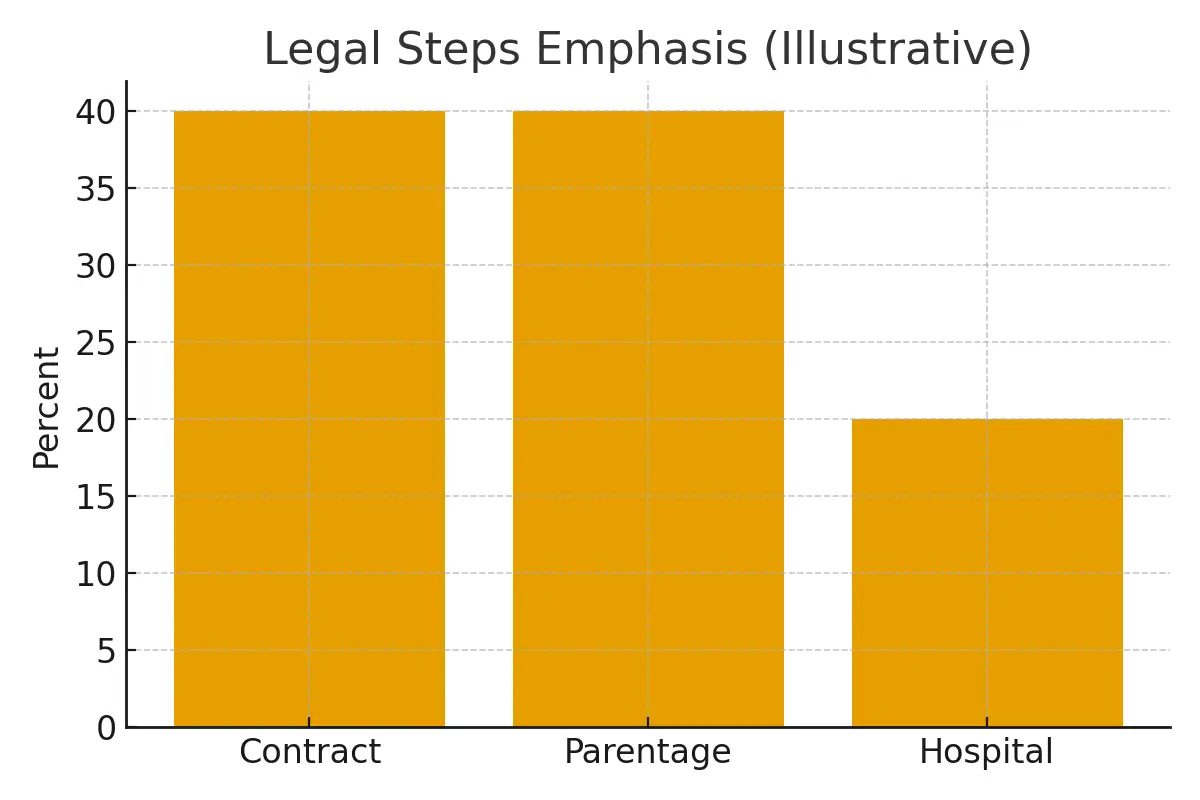
Choosing between a known donor and an anonymous donor is one of the most personal and impactful decisions in LGBTQ+ family building. This article explains the legal and emotional considerations in plain English. We’ll focus on the decisions that actually shape outcomes, budgets, and timelines—so you can move forward with clarity and confidence.
What It Is
A donor provides sperm, eggs, or embryos to help create a family. A known donor is usually a friend, relative, or identified individual. An anonymous donor comes through a bank or program where personal identity is not shared. Understanding where this choice fits, what it changes, and how early decisions affect later results helps prevent surprises down the road.
Who It Helps
- Known donors may suit families who value biological connection, trust within their network, or lower upfront donor costs.
- Anonymous donors are often a better fit when legal certainty, professional screening, or emotional boundaries are top priorities.
- Sometimes, a different path is best—particularly if age, medical history, lab results, or imaging point toward higher-tech or alternative options.
Step-by-Step
- Medical & genetic screening for donor safety and compatibility.
- Legal agreements to protect parental rights (especially with known donors).
- Clinic approval of donor records and readiness.
- Cycle coordination to sync medical treatment with donor availability.
- Follow-up & support to manage boundaries, emotions, and long-term planning.
Pros & Cons
Known Donors
- Can create deeper sense of connection for the child
- Lower initial donor cost
- Legal complexity and possible long-term disputes
- Emotional boundaries may blur over time
Anonymous Donors
- Legal clarity and strong screening standards
- Donor material stored and ready when needed
- Higher cost (bank fees, storage, shipping)
- Child may face questions about genetic identity later
Costs & Logistics
- Known donor: Legal contracts, medical screenings, and possible travel.
- Anonymous donor: Donor bank fees ($500–$1,500 per vial), shipping, storage, and annual renewals.
- Both options: Clinic fees, carrier screening, and sometimes insurance pre-authorizations. Planning tools like escrow accounts or cost trackers help prevent surprise bills.
What Improves Outcomes
- Careful clinic calendar alignment to avoid missed cycles.
- Comprehensive donor screening to reduce medical risk.
- Solid legal documentation to protect parentage.
- Budget planning to prevent delays mid-cycle.
- Access to mental health support for couples navigating emotional weight of the decision.
Case Study
A two-dad couple considered using a close friend as a donor. While this lowered upfront costs, legal consultation revealed risks of future parental claims. After weighing options, they chose an anonymous donor from a reputable bank. Though more expensive, it provided legal security, thorough screening, and peace of mind—helping them stay on budget and timeline.
Mistakes to Avoid
- Beginning treatment without signed legal agreements.
- Skipping carrier screening (especially with known donors).
- Underestimating donor shipping and storage costs.
- Avoiding tough emotional conversations about donor identity.
- Assuming insurance will cover donor-related expenses without checking first.
FAQs
Q. Can we use a friend or relative as a donor?
Ans : Yes—but only with legal contracts and medical screening.
Q. Will an anonymous donor stay anonymous forever?
Ans : Some banks now offer “open ID” donors, allowing the child to make contact at age 18.
Q. Is a known donor always cheaper?
Ans : Not necessarily. Legal, screening, and logistical costs may offset initial savings.
Q. How do both parents secure legal rights?
Ans : Through legal contracts and, often, parentage orders or adoption.
Q. Does donor type affect success rates?
Ans : Medical outcomes depend more on egg/uterus quality, lab standards, and clinic processes than on whether the donor is known or anonymous.
Still unsure which donor path fits your journey? Book a free 15-minute nurse consult, upload your labs, or request a personalized cost breakdown to see how known vs. anonymous donors would impact your specific case.
Related Links

Dr. Kulsoom Baloch
Dr. Kulsoom Baloch is a dedicated donor coordinator at Egg Donors, leveraging her extensive background in medicine and public health. She holds an MBBS from Ziauddin University, Pakistan, and an MPH from Hofstra University, New York. With three years of clinical experience at prominent hospitals in Karachi, Pakistan, Dr. Baloch has honed her skills in patient care and medical research.





